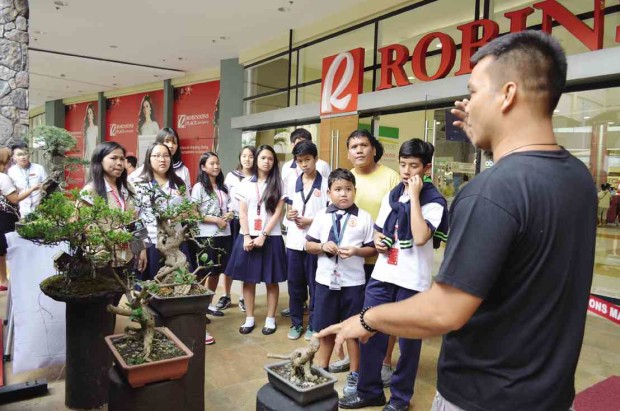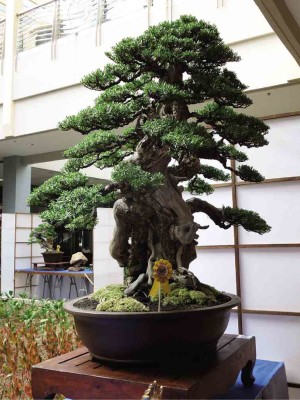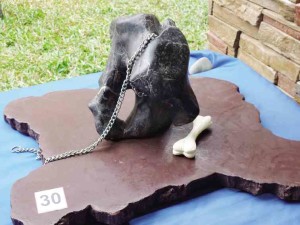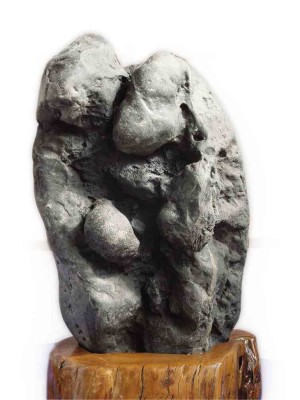A study tour of mini trees and nature-designed stones

DECADES-OLD bonsai (left) was best in show; (above) Cantaco gives students the basics of bonsai propagation.
ANTIPOLO students marveled at the man-made art of miniaturizing trees and nature’s handiwork in the recent Arts of Bonsai and Suiseki show at Robinsons Place Antipolo atrium.
Scores of students learned about the creativity and ingenuity, as well as patience, that went into every single bonsai, which literally means potted tree.
They were introduced to the Japanese art of stone appreciation as they viewed stones that had been shaped and formed, some like living things, through time by wind and water.
The show was organized by Rizal Institute of Bonsai and Suiseki (RIBS), a group of hobbyists and collectors based in the province, in collaboration with Robinsons Place.
It was in line with the Yes to Green ecotourism project of Rizal.
Article continues after this advertisementThe theme of the show was “Sa Tamang Panahon, A Bonsai Pabebe Show.”
Article continues after this advertisementAs the show aimed to make bonsai and suiseki arts more accessible, pre-, primary and high school students in Antipolo were given free guided tours.
Some of the students and teachers returned for the workshops conducted on the last two days of the show by Marcos Cantaco, RIBS founding president Dr. Erwin Fabros, Juan Llaga and Sonny Luna.
Marifi Sarita, who works in the administration office of the Hope Mission Christian School, said that like the students she accompanied, it was her first time to learn about bonsai.
Mathematics teacher Lira Mae Pitallano said the rules followed in growing and shaping bonsai would be useful in geometry, which is about shapes, sizes, positions and properties of space.
Maria Criselda Marilao, an English teacher, said the exhibit taught students how to value creative thinking. She said she might ask her students to write an essay about the outing.
Students said the bonsai show heightened their appreciation of the environment and nature. They found the visit educational and informative as they learned more about trees.
Exhibitors at the show were from Taytay, Cainta, Antipolo, Angono, Binangonan and Tanay.


